1. Pigs
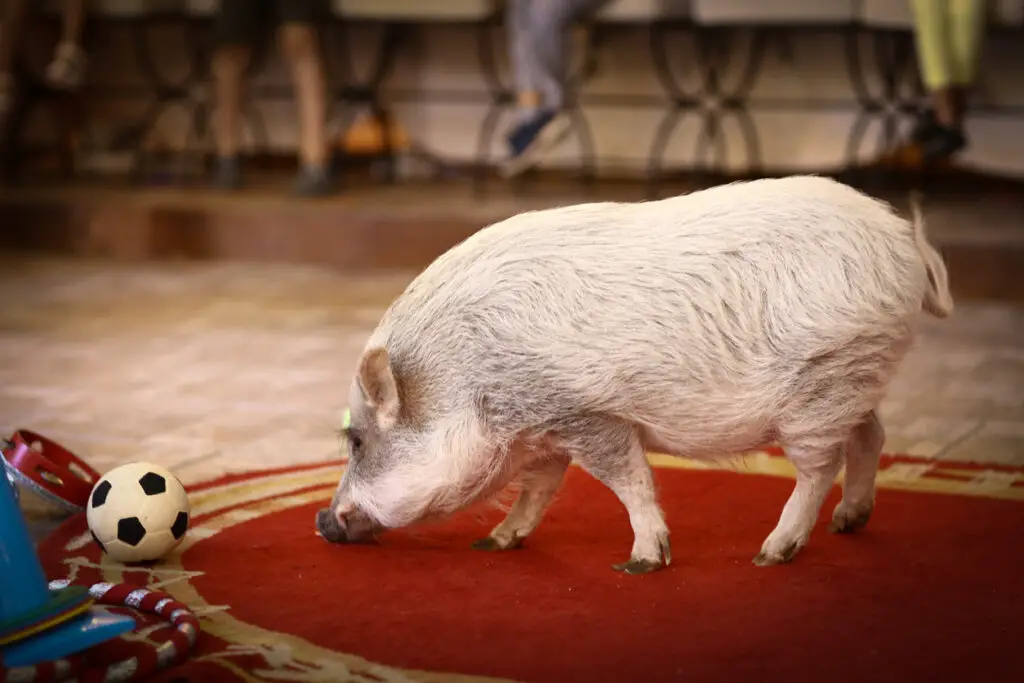
Pigs are considered to be one of the most intelligent animals, with cognitive abilities that rival those of a 3-year-old child. Research has shown that pigs can learn to use mirrors to find food, solve complex puzzles, and navigate mazes, demonstrating problem-solving skills akin to primates. According to a study published in ScienceDirect, they are also capable of forming deep bonds with humans, often seeking out attention and affection. Pigs have emotional depth, experiencing joy, fear, and even frustration, which makes their treatment as food troubling. In fact, their intelligence has led to comparisons with dogs, as both species have shown the ability to learn tricks and interact with humans in meaningful ways.
Pigs are not only highly adaptable but also display a sophisticated sense of empathy, often caring for one another in social situations. Their keen sense of smell and ability to make decisions based on past experiences only adds to their complexity. Moreover, pigs have been observed exhibiting playful behavior and engaging in games, similar to how humans interact with their pets. With their advanced cognitive abilities and emotional awareness, it’s hard to ignore how much they resemble the pets many of us cherish. Their intelligence and strong social bonds make the idea of eating them ethically questionable.
2. Dolphins
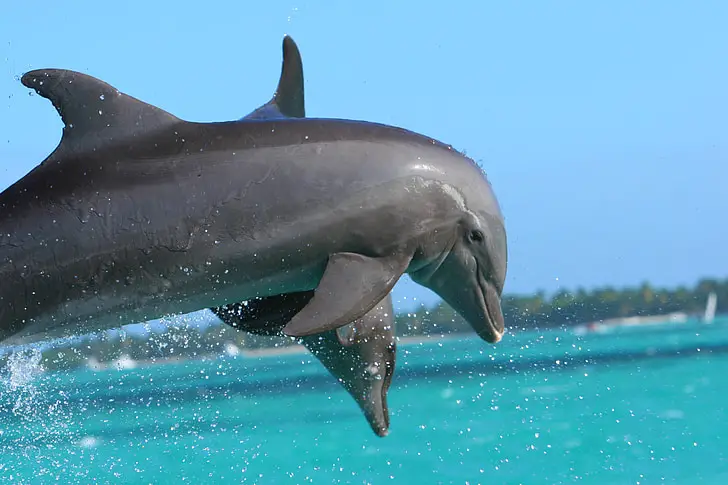
Dolphins are widely regarded as some of the most intelligent creatures on Earth. They exhibit a complex understanding of their surroundings, with the ability to use tools, communicate with each other through a sophisticated language, and even recognize themselves in mirrors. This self-awareness is a rare trait, shared only by a few species, including humans and some great apes. Dolphins form close social groups and display behaviors that indicate strong emotional intelligence, such as comforting injured companions or mourning the loss of a pod member. Their ability to learn abstract concepts, like cooperation and even artistic expression, has been documented in several studies.
Dolphins are capable of problem-solving, and they have been observed using a variety of strategies to hunt and interact with other species. Their highly developed communication skills allow them to coordinate complex activities, and according to the Dolphin Research Center, some researchers have even suggested that they may have a form of culture. With their advanced cognitive abilities and emotional complexity, dolphins deserve respect as sentient beings, not as a food source. Their intelligence and social bonds are so compelling that it’s difficult to ignore the ethical implications of consuming them. The idea of eating a creature that demonstrates such profound intelligence raises serious questions about our relationship with other animals.
3. Crows
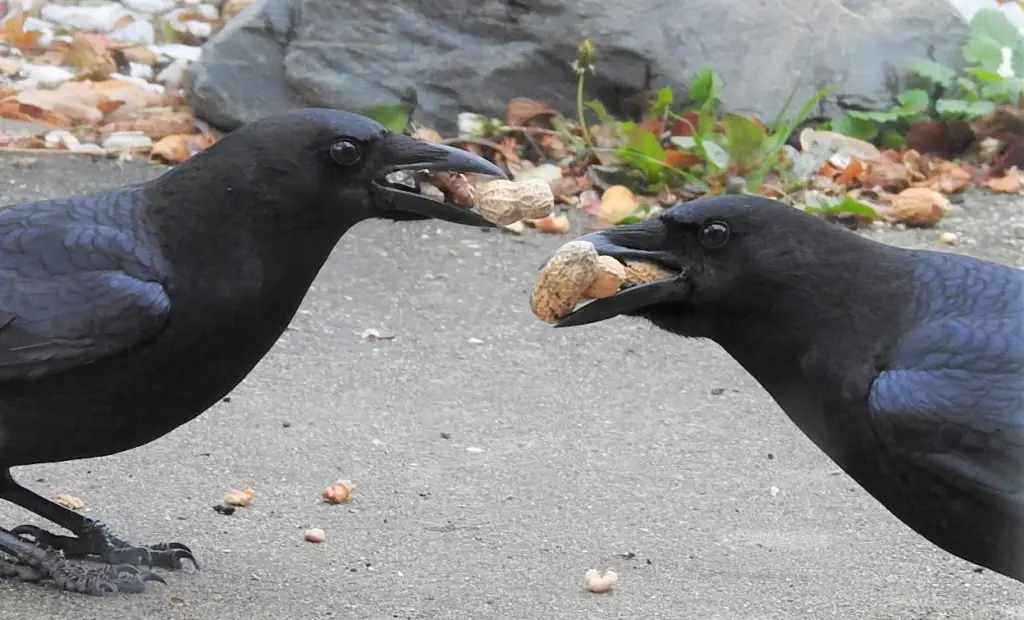
Crows are part of the corvid family, known for their exceptional intelligence. These birds are capable of using tools, solving intricate puzzles, and even remembering faces. Their ability to solve problems is not only impressive but also suggests a high level of cognitive flexibility. Crows have been observed modifying tools to fit their needs, a skill previously thought to be unique to humans and a few other animals. Their intelligence allows them to navigate their environment in ways that are almost human-like, and they can even plan for future events.
According to Discover Magazine, one remarkable trait of crows is their ability to hold grudges, remembering individuals who have wronged them and reacting accordingly. They also demonstrate the ability to teach and learn from each other, which is a hallmark of advanced social intelligence. Some studies have shown that crows can even engage in play, further suggesting that their cognitive abilities extend beyond mere survival instincts. Their ability to work in groups to solve problems or gather food demonstrates a deep understanding of teamwork. Given their ability to plan, communicate, and solve problems, it’s clear that crows are far too intelligent to be considered food.
4. Elephants
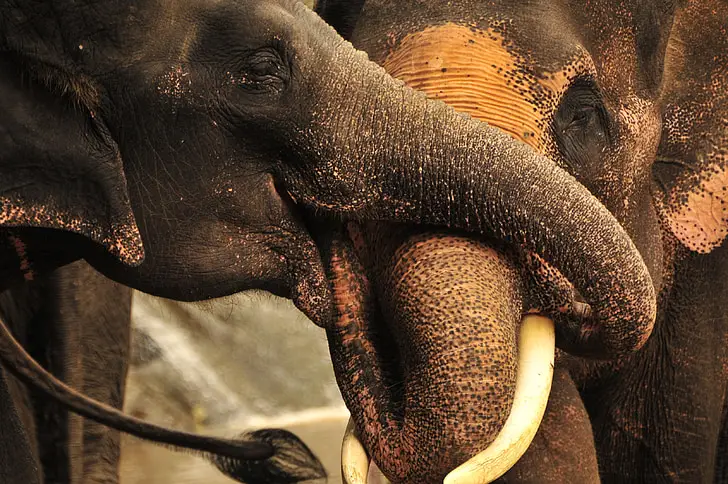
Elephants are among the most emotionally intelligent animals on the planet, known for their complex social structures and profound emotional depth. They live in tight-knit family units, and their bonds are so strong that they have been observed mourning the loss of a family member, sometimes even exhibiting signs of depression. Elephants communicate with each other over long distances using low-frequency sounds, which can travel through the ground and be detected by other elephants miles away. Their ability to understand and interpret social cues is exceptional, and they have been seen helping other animals in distress.
According to the Cleveland Zoological Society, elephants also possess a remarkable memory, able to remember individuals and places for decades. This memory allows them to navigate their environments with a level of precision that is unmatched in the animal kingdom. Their emotional intelligence goes beyond basic survival, as they form deep connections with others in their herd, and their intelligence extends to their ability to solve complex problems. Elephants have been observed using tools, such as branches, to swat flies or scratch themselves, further demonstrating their cognitive capabilities. These animals show empathy, cooperation, and a sophisticated understanding of their world, making it difficult to view them as food. Given their social bonds and emotional awareness, elephants should be regarded with the same respect and compassion that we afford to humans.
5. Octopuses
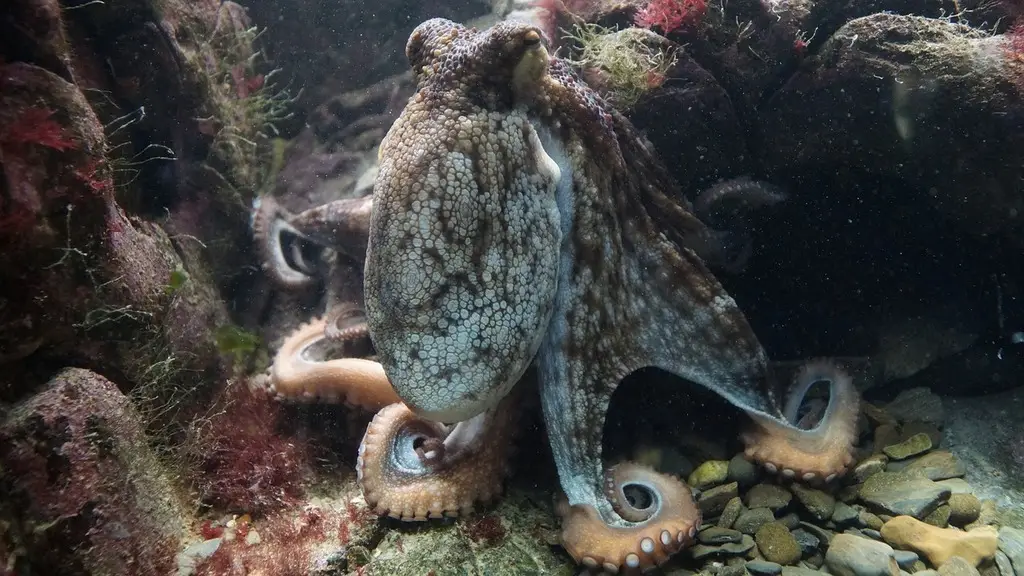
Octopuses are fascinating creatures with intelligence that defies their simple appearance. Despite having no backbone, they are capable of solving complex puzzles, escaping from enclosures, and even demonstrating individual personalities. Their problem-solving abilities are so advanced that they have been observed manipulating objects in their environment and using tools to their advantage. One of the most remarkable aspects of octopus intelligence is their ability to learn by observation, meaning they can adapt to new situations without prior experience. Their exceptional memory allows them to recall specific tasks or events, a trait that is highly unusual for animals outside of mammals.
Octopuses also exhibit a level of curiosity about their environment that suggests an understanding of the world beyond basic instinct. Their ability to camouflage, changing both their color and texture to blend into their surroundings, shows an awareness of their environment that goes beyond mere survival. According to a study published in Frontiers in Behavioral Neuroscience, they are also highly adaptable, capable of learning from mistakes and modifying their behavior accordingly. With their advanced cognitive abilities, ability to solve problems, and even express individual preferences, octopuses are far too intelligent to be viewed as mere food. Their intelligence and complexity are a testament to the fact that there’s much more to them than meets the eye.
6. Chimpanzees
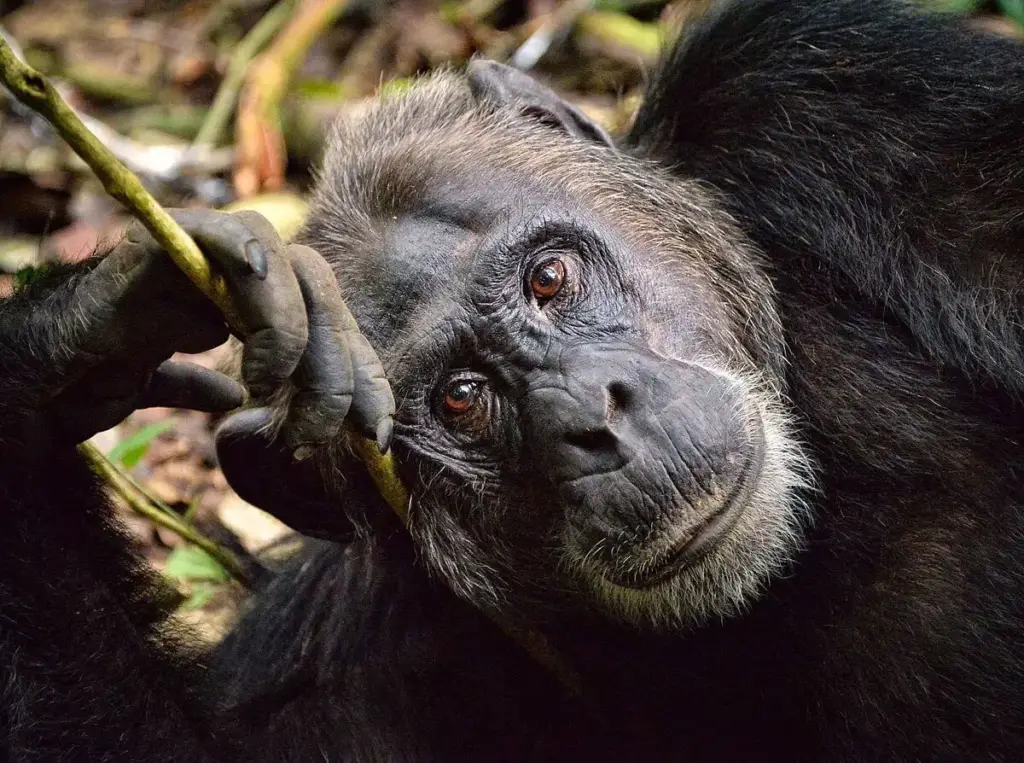
Chimpanzees are our closest living relatives, sharing about 98% of their DNA with humans. This close genetic relationship is reflected in their remarkable cognitive abilities. Chimpanzees are known to use tools, communicate through a variety of gestures and vocalizations, and even form complex social structures. They live in groups with clear hierarchies, and their interactions are often based on cooperation, conflict resolution, and mutual support. These primates are capable of problem-solving, using tools to obtain food or improve their living conditions. Chimpanzees can also display emotional depth, including expressions of joy, sorrow, and empathy.
They have been observed comforting each other in times of distress and engaging in playful activities, such as wrestling or playing with objects. Their ability to recognize themselves in mirrors is a sign of self-awareness, a trait that is highly indicative of intelligence. Chimpanzees also have the ability to learn new behaviors from each other, suggesting a capacity for cultural transmission. With their intelligence, social bonds, and emotional complexity, chimpanzees deserve to be treated with respect, not as food. Their cognitive and emotional depth makes the idea of eating them deeply troubling.
7. Whales

Whales, especially orcas, are some of the most intelligent creatures in the ocean. They have complex social structures, with pods consisting of family groups that work together to hunt, communicate, and protect one another. Orcas, in particular, are known for their advanced hunting techniques, which require cooperation and sophisticated strategies. Their communication skills are highly developed, and they use a variety of sounds to maintain contact with each other, much like human language. Whales are also capable of forming deep emotional bonds within their pods, and their social structures are highly organized. They have been observed displaying behaviors that suggest a profound understanding of their environment, such as coordinating with other species to hunt.
Whales’ ability to navigate the vast oceans using echolocation and their keen sense of direction demonstrate their intelligence and adaptability. Their emotional intelligence is also evident, as they have been seen comforting injured or distressed members of their pods. With their remarkable communication skills, social bonds, and intelligence, whales are far too smart to be seen as a source of food. Their advanced cognitive abilities and deep emotional connections make them creatures worthy of admiration and protection.
8. Ravens
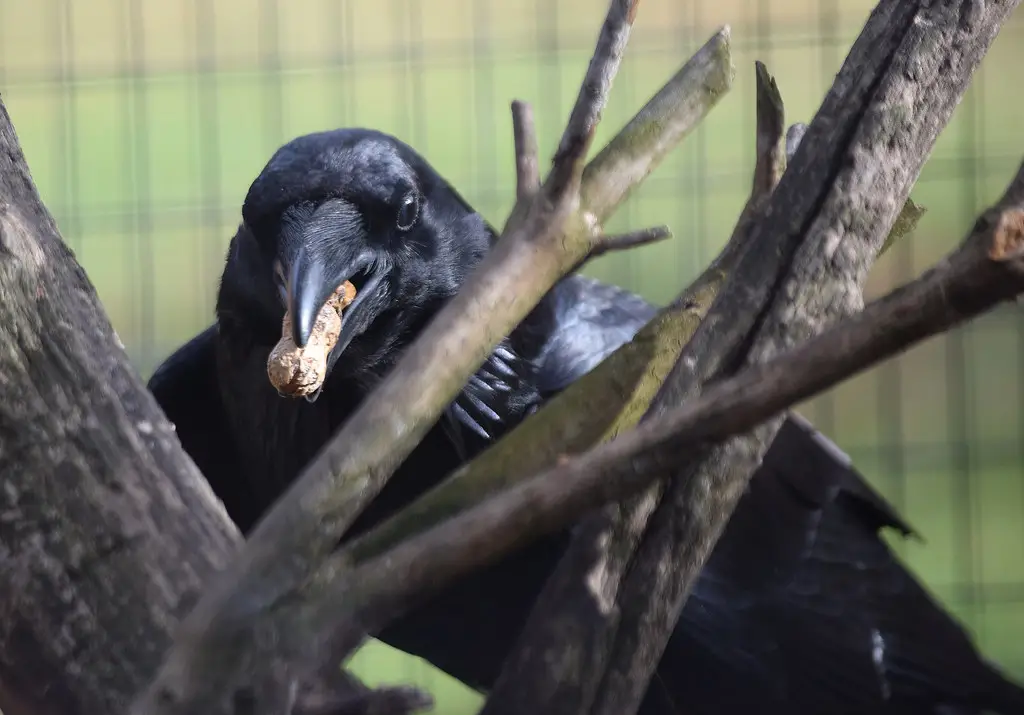
Ravens are incredibly intelligent birds, capable of learning new skills and solving problems with impressive creativity. They can plan for the future, understand cause and effect, and use tools to accomplish specific goals. Ravens have been observed creating their own tools, such as using sticks to extract insects from tree bark. They are also highly social creatures, engaging in playful behaviors and forming complex relationships with other ravens. Their ability to recognize and remember individuals, both human and animal, allows them to interact with the world in a highly personalized way.
Ravens are known for their ability to communicate through a variety of sounds and gestures, and they are capable of understanding the emotions of other animals. Some studies have even shown that ravens can experience emotions like jealousy, further demonstrating their cognitive depth. Their ability to solve problems and learn new tasks makes them one of the most intelligent bird species. Ravens also exhibit a level of empathy, as they have been observed helping other animals in need. Given their remarkable intelligence and social behaviors, it’s clear that ravens are too smart to be considered food.
9. Sharks (Certain Species)
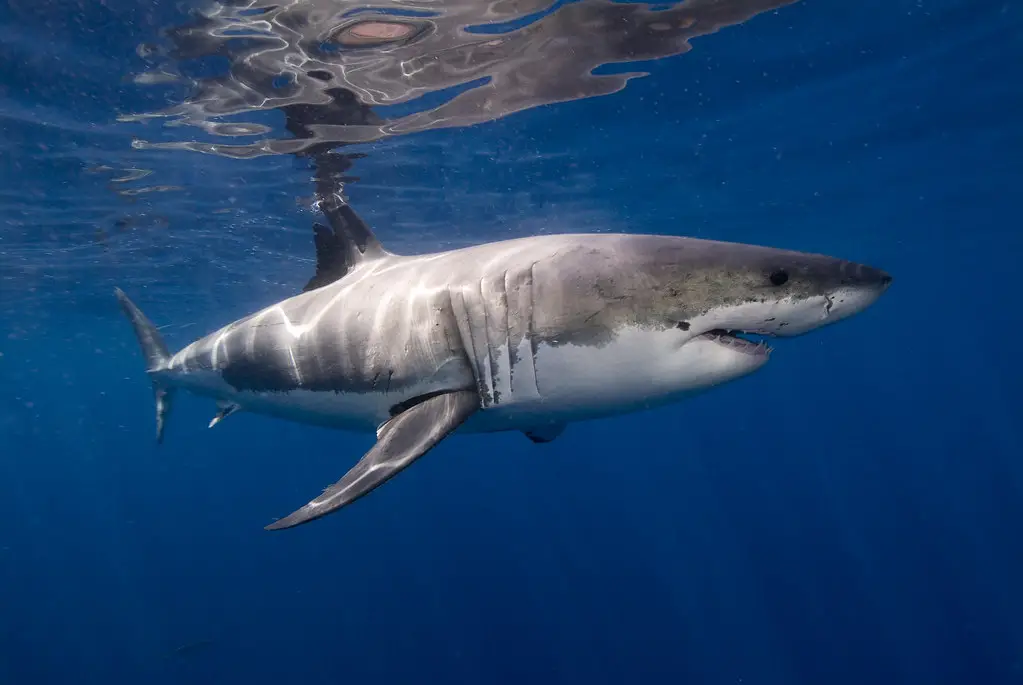
Sharks are often misunderstood as mindless predators, but certain species, such as the great white shark, exhibit signs of intelligence that are too advanced to ignore. These sharks are capable of learning from experience, adjusting their behavior based on previous encounters with prey or other threats. Their ability to recognize patterns in their environment, including the movements of potential prey, showcases a level of cognitive processing that is rare among animals. Sharks also exhibit social behaviors, with some species forming loose aggregations to hunt or migrate together. Their sophisticated hunting strategies demonstrate advanced problem-solving skills and an ability to adapt to changing circumstances.
Great white sharks, for example, use a methodical approach to hunting, working with the currents and tides to trap their prey. These behaviors suggest that sharks have an understanding of their environment that goes beyond mere instinct. Their ability to learn from their experiences and adapt to new situations highlights their intelligence and adaptability. With their remarkable cognitive abilities, it’s hard to see sharks as just another food source. They are creatures of the deep, deserving of respect and awe rather than consumption.
10. Rats

Rats are often associated with pests, but they are highly intelligent animals capable of remarkable feats of learning and problem-solving. They have been shown to navigate complex mazes, solve puzzles, and remember the paths they’ve taken in the past. Rats are also social animals, forming close bonds with one another and even exhibiting empathetic behaviors. Studies have shown that rats will help other rats in distress, even when there is no immediate benefit for themselves.
This ability to act altruistically is a clear sign of emotional intelligence. Rats also demonstrate the ability to learn through observation, picking up new skills by watching others. Their adaptability makes them excellent survivors, able to thrive in a variety of environments. Rats have even been observed engaging in play, further demonstrating their cognitive complexity. Their intelligence and emotional awareness make them too smart to be seen as pests or food. With their problem-solving abilities, social bonds, and empathetic behaviors, rats are deserving of our respect and protection.


